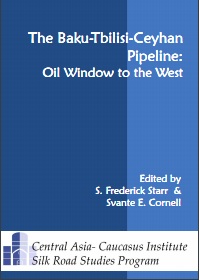How Georgia Stamped Out Corruption on Campus
Retribution and the Rule of Law: The Politics of Justice in Georgia
June 2015
Over the last several years a gradual politicization of justice in Georgia has put into question the country’s democratization progress. Most attention has centered on the judicial campaign launched beginning in late 2012 against a number of former government officials, including former President Mikheil Saakashvili, who has been ordered to pre-trial detention in absentia. This policy of selective justice has resulted in domestic as well as international criticism and raises important questions with regard to the independence of the judicial structures and, overall, the current state of the rule of law in Georgia.This paper examines the question of the politicization of justice in light of two key issues: first, the degree to which the prosecution is under the influence of the executive; and second, whether arrests of key individuals are purely punitive, or seek to weaken political opponents.
A Strategic Conflict Analysis of the South Caucasus (With a Focus on Georgia)
By Svante E. Cornell, Niklas L.P. Swanström, Anara Tabyshalieva, Georgi Tcheishvili
The Baku-Tbilisi-Ceyhan Pipeline: Oil Window to the West
By S. Frederick Starr & Svante E. Cornell (Eds.)
Click to Download full book as PDF file or click on individual chapters below.
1. The Baku-Tbilisi-Ceyhan Pipeline: School of Modernity 7
S. Frederick Starr
2. Geostrategic Implications of the Baku-Tbilisi-Ceyhan Pipeline 17
Svante E. Cornell, Mamuka Tsereteli and Vladimir Socor
3. Economic Implications of the Baku-Tbilisi-Ceyhan Pipeline 39
Jonathan Elkind
4. The Baku-Tbilisi-Ceyhan Pipeline: Implications for Azerbaijan 61
Svante E. Cornell and Fariz Ismailzade
5. The Baku-Tbilisi-Ceyhan Pipeline: Implications for Georgia 85
Vladimer Papava
6. The Baku-Tbilisi-Ceyhan Pipeline: Implications for Turkey 103
Zeyno Baran
7. Environmental and Social Aspects of the Baku-Tbilisi-Ceyhan Pipeline 119
David Blatchford

 By
By 

